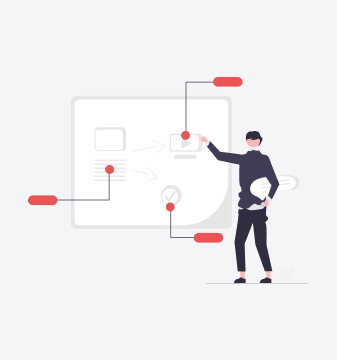Data science is one of the most exciting and promising fields today. With the ability to extract insights from data, data science powers many of the technologies and conveniences we use daily. For those looking to break into this domain, working on data science projects can be an exciting on-ramp to build skills and portfolio pieces. This article explores beginner-friendly data science project ideas across critical areas like chatbots, computer vision, predictive analytics, and more.
So, let’s get started.
What is Data Science?
Data science brings together computer science, statistics, and business strategy expertise. It focuses on extracting insights from data by leveraging various processes and algorithms. These data-fueled insights drive business value across functions like marketing, operations, finance, and product development. Moreover, data science project ideas become a crucial avenue for applying theoretical knowledge in practical scenarios.
Data scientists employ programming languages like Python and R to execute the data science lifecycle – asking the right questions, collecting and cleaning data, applying models and algorithms, interpreting outcomes, and communicating results. This combination of technical skills and business acumen makes data scientists valuable.
Data Science Project Ideas for Beginners
Here are some innovative science project name suggestions for beginners:
1. Building Chatbots
Chatbots allow humans to interact with machines conversationally. Using Python libraries like NLTK and Tensorflow, you can build the bots, train them on dataset samples, and customize them for specific purposes. Chatbot projects make for great practice with natural language processing and neural networks.
2. Human Action Recognition
Computer vision techniques like convolutional neural networks can automate the identification and classification of human actions. Gather image datasets around target actions, preprocess them, design model architectures with relevant layers, train the models on GPU-enabled notebook runtimes, and evaluate performance. This is one of the top data science project ideas that beginners must consider taking.
3. Road Lane Line Detection
An integral aspect of self-driving car technology involves building computer vision models that can automatically detect road lane lines from dashboard camera feeds. Practice core skills like image processing, predictive modeling, and evaluation to create lane detection algorithms. Implementing these data science project ideas can significantly enhance your problem-solving skills and technical expertise.
4. Forest Fire Prediction
Combining satellite imagery data and meteorological sensor data can help predict forest fires – saving wildlife and human lives. Practice your geospatial data and time-series forecasting abilities with this project idea. The key lies in identifying relevant datasets and designing meaningful feature engineering. Also, collaborating on data science project ideas can lead to innovative solutions and is a great way to learn from peers.
5. Fake News Detection

Fake news remains a significant issue among the different data science project ideas, given social media echo chambers. Leverage NLP capabilities like text classification to automate fake news detection. Practice data collection, text preprocessing, comparing modeling techniques like RNNs and Transformers, and tuning for better prediction of news authenticity.
6. Recommender Systems
Recommendation engines are a famous use case of data science in practice today. Build your first by applying concepts like collaborative and content-based filtering. As you progress, explore enhancements like rankings, user-user benchmarks, and hybrid recommendations.
7. Exploratory Data Analysis
Structured and unstructured data require essential first steps like cleaning, munging, visualization, and statistical analysis to surface patterns. Using Python visualization libraries like Seaborn, Matplotlib, and Plotly, generate insights from sample datasetamental EDA skills.
8. Sentiment Analysis
Opinion mining and sentiment analysis help identify emotions and feelings within text data. This has applications across review sites, customer surveys, and social media. Build models using machine learning algorithms that can categorize text data as positive, negative, or neutral.
9. Web Scraping
Important data often resides on the web in HTML format across articles, tables, databases, etc. Web scraping skills help aggregate useful data locked away on the web into structured datasets. Practice using languages like Python and tools like Selenium or BeautifulSoup for web data collection at scale. Also, web scraping is one of the most popular data science project ideas, offering a practical way to gather and analyze vast amounts of data from the internet.
Conclusion
Data science offers beginners an exciting gateway into a promising field with theoretical and practical exposure. The data science project ideas above allow novice data scientists to build in-demand skills across chatbots, computer vision, predictive analytics, data visualization, and other critical domains. As the first steps towards mastering data science, these innovative starters develop tangible portfolio pieces while grounding foundational concepts.
FAQs
Q1. What are some good data science project ideas for beginners to build skills?
Some great starter data science projects include building chatbots, sentiment analysis, exploratory data analysis, and recommender systems.
Q2. What programming languages are used in data science?
Python and R are the most popular programming languages used by data scientists.
Q3. Why are projects important for getting into data science?
Real-world-focused projects enable beginners to develop in-demand data science skills tangibly. Applying textbook concepts to build chatbots, predictive systems, data visualizations, etc., grounds core technical abilities while creating portfolio showpieces to demonstrate capabilities.
Q4. What kind of business value does data science provide?
Data science drives strategic value for functions like marketing, operations, logistics, and product development by deriving actionable metrics and insights from data.




